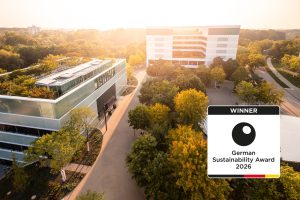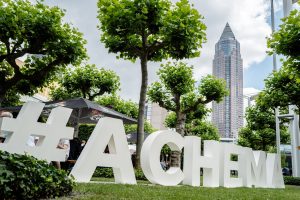Berea College First Higher Education Institution to Bring Hydroelectric Power to Region
“The hydroelectric generating plant shows that local green initiatives like this one can be financially feasible and create reliable sources of income and acceptable rates of return on investment,” said Berea College President Lyle Roelofs. “At the same time, it displays to our students and everyone else both the College’s commitment to environmental sustainability and the viability of state-of-the-art renewable energy technologies.”
Completed in late May, the plant will provide energy to hundreds of Jackson Energy Cooperative customers. In addition, the plant will create new learning opportunities for Berea College students while helping fulfill the college’s commitment to environmental sustainability.
The $10.2 million energy project, named the Matilda Hamilton Fee Hydroelectric Station after the first “First Lady” and a co-founder of Berea College, is the result of a collaboration with Appalachian Hydro Associates (AHA), which provided the engineering and regulatory expertise needed to complete it. Other entities involved in the project include the Kentucky River Authority, Jackson Energy Cooperative, Wright Concrete & Construction of Pikeville, Kleinschmidt Group, and Xylem.
Berea College arranged funding for the project, investing some of its own funds and also making use of federal and Kentucky New Markets tax credits and investment tax credits through assistance from key financial partners Community Ventures Corporation; Midwest Renewable Capital Fund; Community Impact Fund; U.S. Bank, NA; Chase Bank and Hardscuffle, Inc.
“This project has world-class engineering from AHA, Kleinschmidt and Xylem, and forward-thinking financial partners with the shared vision of a more sustainable future,” said Judge Wilson II, Berea College general counsel. “We are so thankful to everyone involved, including the Kentucky River Authority and our trustees, who have been very supportive from the beginning. Without these partnerships and support, this environmentally sustainable project could not have happened.”
AHA created a new hydroelectric plant model that makes development financially viable by solving a number of problems presented with conventional hydroelectric dams. The plant works by “shoe-horning” submersible turbine generators developed by Xylem into an abandoned navigational lock. The Lock 12 powerhouse contains five submersible generators, each producing 528 kilowatts, for a total plant size of 2.64 megawatts. The electricity produced is sold to Jackson Energy Cooperative at a discounted rate.
“This is a response to climate change,” David Brown Kinloch, president of AHA, said. “This is clean, renewable energy. We will eliminate about 11,000 tons of carbon dioxide in the air every year.”
In addition, the demonstration project is the first hydroelectric plant in the nation to use variable speed technology. Borrowed from wind power, variable speed drives allow the turbines to operate at maximum efficiency. With this project and plans to build more hydroelectric stations in the future, the carbon footprint of Berea College will be more than entirely offset.
“Berea College’s commitment to environmental sustainability inspires us to demonstrate renewable, carbon-free energy generation approaches to students and the region,” President Roelofs said. “And our commitment to Appalachian communities is shown through the local labor used to build the plant, as well as the property taxes generated for schools in Estill County.”
The area around Lock and Dam 12 has been improved to include a pavilion with picnic tables for the benefit of local residents and a portage way for kayakers on the river.
The revenue generated by the project will be funneled into Berea College’s general fund to support the mission of educating students of limited financial means. “We’re glad that the money, the investment, is being used to teach students that otherwise couldn’t go to college,” said Robert Fairchild, vice president of AHA. “We believe in the mission of Berea College as well.”
Source: Xylem Inc.





